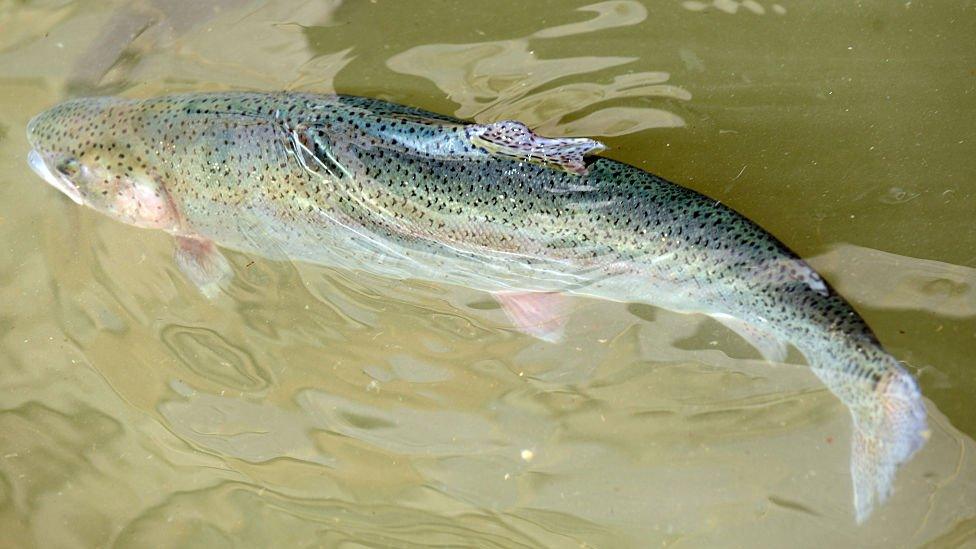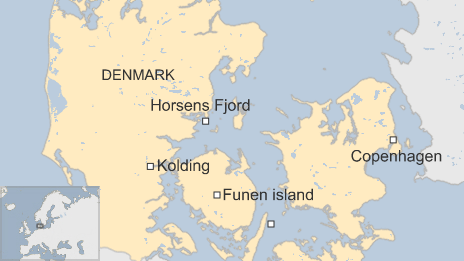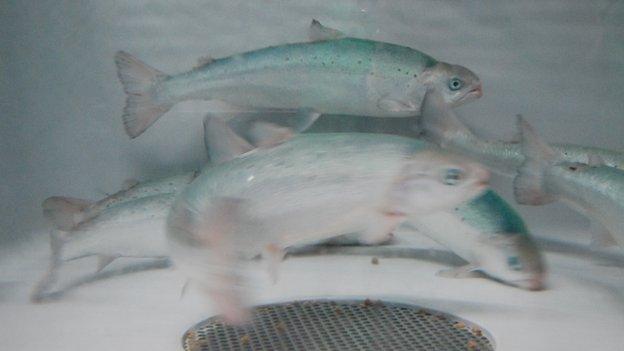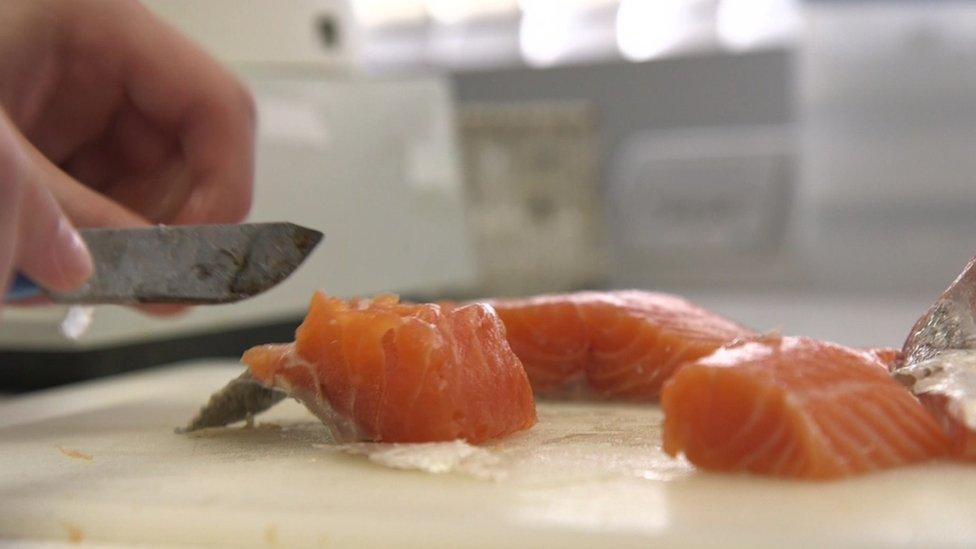Danish anglers urged to catch 80,000 escaped trout
- Published

It is feared that the rainbow trout could eat the eggs of wild sea trout
Up to 80,000 farmed rainbow trout have been accidentally released into the sea in Denmark, prompting a call for anglers to try to catch them.
The accident happened when a cargo ship crashed into a fish farm on the Horsens Fjord on the Jutland peninsula.
There are fears that the fish, weighing about 3kg (6lb 10oz) each, could disrupt the reproduction of other trout species.
A local environmentalist urged "anyone with fishing gear to... go fishing".
Soren Knabe, chair of the environmental group Vandpleje Fyn and a member of the Danish Angler's Association, told the Copenhagen Post that it was the worst possible time, external for rainbow trout to be released into Danish waters.
"Sea trout are currently coming up into Funen streams to spawn, and sea trout eggs are a favourite food for rainbow trout," said Mr Knabe, referring to Funen island, south of the farm.
'Very unfortunate'
The cargo vessel was en route from the Russian enclave of Kaliningrad, to the east, to the Danish port of Kolding when it crashed on Tuesday.

Jon Svendsen, a researcher at Denmark's National Institute of Aquatic Resources, said rainbow trout were feared to pose a threat to sea trout reproduction by digging up sea trout eggs while trying to spawn themselves.
He said the release would have an immediate environmental impact and the timing was "very unfortunate".
Dr Svendsen endorsed the call for anglers to try to round up the fish. However, he said the threat was not long-term - as rainbow trout do not establish permanent wild populations in Denmark.
Of greater threat to the local environment, he said, were sand extraction for construction, invasive species, climate change - and fish farms themselves.
"Fish farms pose a much greater threat to the local marine environment, mainly because of nutrient releases into the local environment, which may be associated with algae blooms and subsequent hypoxia (low oxygen conditions)," Dr Svendsen told the BBC.
- Published12 June 2015

- Published6 October 2016
